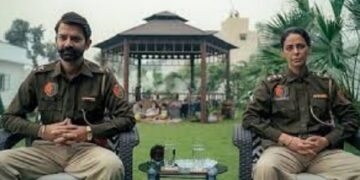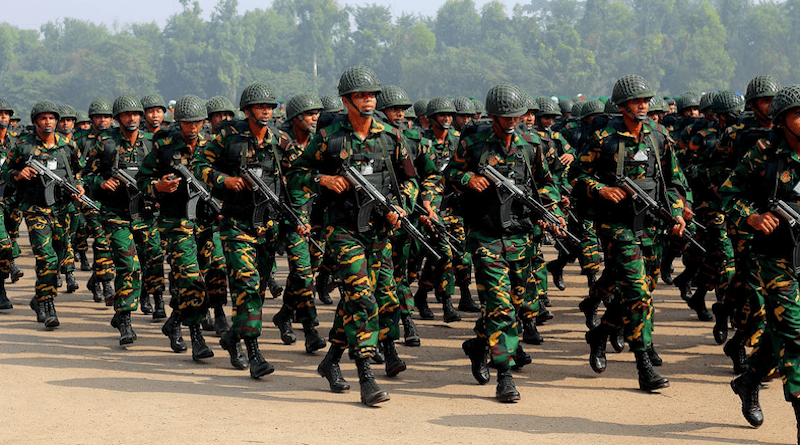The Bangladesh Army will not come in the way of the International Crimes Tribunal’s (ICT) arrest warrant against 24 officers who have been found to have been involved in alleged enforced disappearances, secret detention and torture during Sheikh Hasina’s 15-year rule.
Tension and excitement among the officer corps found expression on April 9 when some senior lieutenant and major generals were in a meeting with Army chief General Waker-uz-Zaman.
It is reliably learnt that the meeting, which was originally scheduled to discuss military procurements for the Army, digressed to discuss the ICT’s October 8 order on the 24 officers against whom it issued arrest warrants.
The ICT also ordered that the officers, including one lieutenant and four major generals and some brigadiers, colonels and majors, be produced before the quasi-judicial platform on October 22, indicating that the transfer from the Army’s custody to the civilian authorities must happen before they are produced in ‘court’ less than two weeks from now.
“The law of the land will prevail and there is no scope for the trial of the 24 officers under provisions of the 1952 Army Act. They will be tried under specific provisions of civilian laws related to the charges brought against them,” an officer close to the top brass disclosed.
Earlier on October 9 afternoon, a senior officer of the Directorate General of Forces Intelligence (DGFI) met a US diplomat for at least two hours.
Bangladesh security service sources said that the “sensitive” issue came up for discussion once the meeting on procurement ended. “Gen Zaman raised the issue of the ICT order, following which the assembled officers were divided into two camps – one which was supportive of the judgment while the other was opposed to it,” a senior officer said.
“While Gen Zaman said that he had tried to ensure that the 24 officers be tried under the Army Act of 1952 and went to the extent of stopping their transportation by police vehicle to judicial custody, he was also clear that the situation did not warrant an Army takeover or declaration of emergency,” the source said, adding that “he (Gen Zaman) said that he would try to ensure that injustice was not done”.
It may be recalled that when Gen Zaman met Bangladesh Chief Justice Syed Refaat Ahmed on September 1, the latter had shared his opinion that the 24 officers should be tried under civilian laws.
Some officers, both serving and retired, said that while that the Army “was not comfortable” with the ICT order and the consequent trial under civilian laws, “there was little choice” but to follow allow the “law of the land to prevail over the Army Act”.
A retired major general, who did not want his identity to be disclosed, said that “this was the time to set the course of the rule of law to prevail. A lot of officers were involved in employing or being responsible for using extra-judicial means during the previous regime. It is now time to clean the top”.
At the same time, this officer said, “it would be foolish to take a stand against the ICT’s order which was delivered with the objective of creating deterrence for future generations of Army officers”.
The process of handing over the 24 officers to the civilian authorities would take place before the October 22 deadline for their production in the tribunal’s court.
While some officers said that Gen Zaman could use his position as Chief of Army Staff to ensure that the accused officers are not transported in a police van to court and, depending on what transpires on October 22, then into judicial custody.
“Resisting surrender before the civilian authority would have meant arrest. This can be avoided if the transfer of the officers to the civilian authorities happens as seamlessly as possible,” sources said.
Some two to three generals suggested (during the October 9 meeting) that the Army should declare emergency and take over, but after a break in the proceedings Gen Zaman “changed tune” and adopted a more conciliatory approach that the law of the land must prevail.















